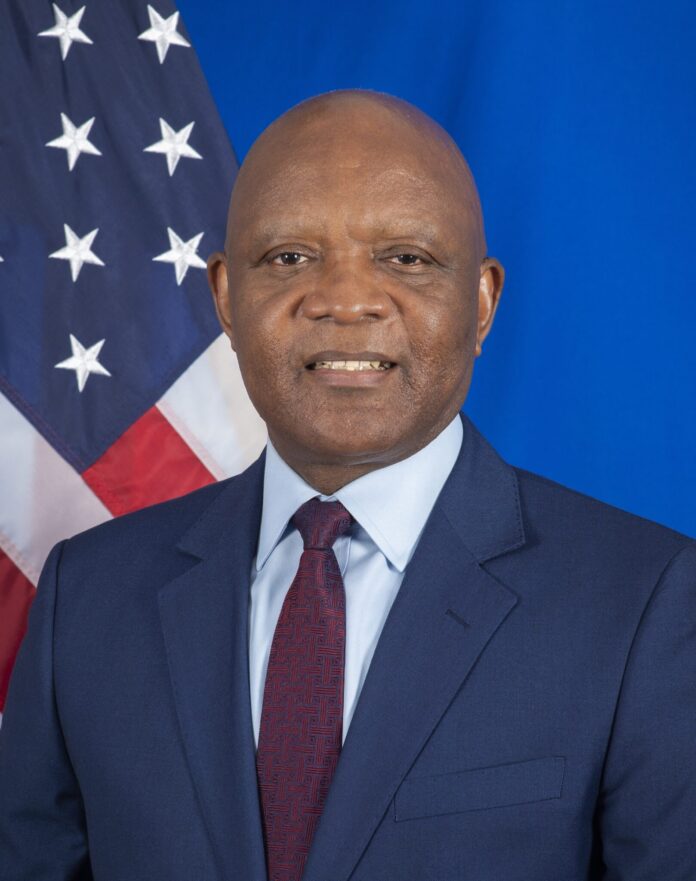Ambassador John N. Nkengasong, the U.S. Global AIDS Coordinator, has urged African nations to take the lead in the battle against the virus.
As the continent approaches a critical milestone—the goal of eradicating HIV by 2030—Nkengasong stressed that hard-won gains could be lost without sustained political commitment and strategic partnerships.
“HIV may seem like a disease of the past, but it’s still very much a threat today,” he warned, emphasizing the need for renewed focus, especially as global priorities shift
In an online briefing hosted by the U.S. Department of State’s Africa Regional Media Hub, Ambassador John N. Nkengasong highlighted the challenges and successes of the President’s Emergency Plan for AIDS Relief (PEPFAR) over the past 21 years. With the clock ticking toward 2030, Nkengasong urged African nations to take greater ownership of their HIV programs to ensure that the progress made is not undone.
Broadcasting live from Botswana, Ambassador Nkengasong celebrated the country’s achievement of the UNAIDS “95-95-95” goals, which aim to diagnose 95% of all people living with HIV, place 95% on sustained antiretroviral therapy, and achieve viral suppression in 95% of those on treatment. “Botswana is proof that with the right support and commitment, it is possible to win the fight against HIV,” he said. He noted that PEPFAR has invested over $1 billion in Botswana, contributing to its success, but stressed that the fight against HIV is far from over.
Ambassador Nkengasong pointed out that in 2023 alone, Botswana recorded 4,200 new HIV infections, particularly among young people. “We can’t be complacent,” he warned. “HIV is still claiming lives and spreading silently. The fight isn’t finished.” He called on African nations to strengthen their health systems and ensure that local leadership drives the next phase of the response. “This is about sustainability. What happens when PEPFAR eventually scales back? Are countries ready to continue the fight?”
When asked about the impact of emerging global crises such as COVID-19 and climate change on HIV funding, Nkengasong was frank. “HIV may not dominate the headlines like it used to, but it is still killing people. Last year, 650,000 people died of HIV/AIDS globally, and 60% of those deaths were in Africa. We can’t let the virus become a ‘forgotten’ pandemic.”
One of the most pressing issues raised during the briefing was the inequity in access to HIV treatment for children. Nkengasong acknowledged that while overall treatment coverage has improved, children remain underserved. “The gaps are concerning. Children lag behind in treatment access, and we need to prioritize them,” he said. PEPFAR has already launched a $40 million initiative aimed at closing this gap, but the Ambassador called for more to be done to ensure no one is left behind.
Ambassador Nkengasong also highlighted PEPFAR’s extensive efforts to strengthen Africa’s health systems, including the training of over 240,000 healthcare workers, support for 3,000 laboratories, and the enhancement of information systems and supply chains. He emphasized that the foundation laid by PEPFAR has not only helped fight HIV but has also been critical in responding to other health crises such as COVID-19 and mpox.
Looking ahead, Nkengasong was cautiously optimistic about the potential for scientific advancements, such as long-acting injectable antiretroviral therapy, to revolutionize HIV treatment. However, he emphasized that the success of these innovations would depend on their affordability and accessibility, particularly for at-risk populations.
As the briefing concluded, Ambassador Nkengasong reiterated that the journey to an AIDS-free generation by 2030 would require continued collaboration and political will. “You may be tired of HIV, but HIV is not tired of us,” he said. He called on the media to play a key role in maintaining public awareness and ensuring that the fight against HIV/AIDS remains a priority.
Source: myinfotoday.com

